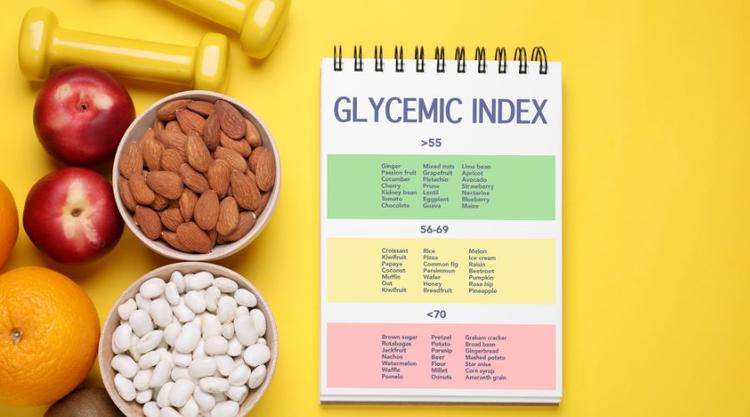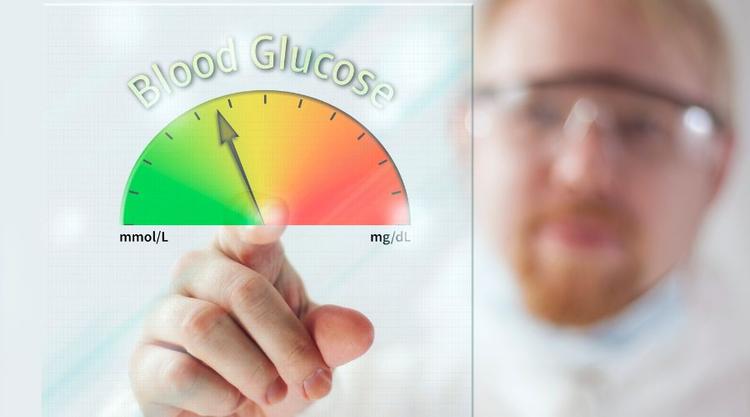Type II Diabetes is Irreversible, But Lifestyle Changes May Control it

Medically Reviewed By
Dr Sohini Sengupta
Written By Kirti Saxena
on Apr 29, 2024
Last Edit Made By Kirti Saxena
on Apr 29, 2024

As per the statistics of the Indian Council of Medical Research, India has the world's second-highest number of diabetics, with estimates of over 101 million adults aged 18+ having diabetes.
Over 90% of Diabetes cases in India are type 2 diabetes, which is often linked to lifestyle factors like unhealthy diet, physical inactivity, and obesity.
Type 2 diabetes is a chronic condition; it doesn't have to define your life. Through positive lifestyle changes, you can take control of your health and manage your blood sugar levels effectively. In this article, let's explore type 2 diabetes more and how you can manage it with lifestyle changes.
What is Type 2 diabetes?
You might have heard about the term Type 2 diabetes many times, but do you know exactly what the term means?
Well, most of you might confuse it with normal diabetes!
Our food is broken down into glucose, which enters our cells and fuels our activities. Insulin, a hormone made by the pancreas, acts like a key that unlocks the door, allowing glucose to enter the cells.
There are two types of diabetic conditions. Prediabetic and Type 2 diabetes
Type 2 diabetes is a chronic condition that affects how the body regulates blood sugar. Insulin is a hormone that helps move glucose from the blood into the cells, where it's used for energy.
In type 2 diabetes, two things can happen:
- Insulin Resistance- When your cells become resistant to insulin's message, it is harder for glucose to enter the body.
- Insulin Deficiency- Your pancreas may not produce enough insulin,
Both of the above conditions can cause a rise in blood sugar levels. Over time, high blood sugar can damage your nerves, eyes, kidneys, and heart.
Risk factors for type 2 diabetes:
- Being overweight or obese
- Having a family history of diabetes
- Being inactive
- Having a high-carbohydrate diet
- Being over 45 years old
- Having a history of gestational diabetes
- Having polycystic ovary syndrome (PCOS)
- Having certain races or ethnicities (such as Hispanic, Latino, African American, Asian American, or Pacific Islander)
Do you fall under the above risky categories?
Read the factors again, and if you think you might be at risk for type 2 diabetes, consult your doctor and take regular health diabetes checkups and blood sugar testing. Early diagnosis and treatment can help prevent serious health complications.
Also Read: Family History and Genetics: Can You Prevent Diabetes if It Runs in the Family?
What are the symptoms of Type 2 diabetes?
The symptoms might be different in different people. However, some people might not experience any symptoms. Here are some common symptoms to watch out for
- Increased thirst and urination
- Feeling very hungry (even after eating)
- Unusual weight loss (though not everyone experiences this)
- Fatigue and low energy
- Blurred vision
Also read: What Is Diabetes & Its Causes, Symptoms?
Is Diabetes Reversible?
A major concern is that over 50% of People with diabetes in India are unaware of their condition. Early detection and treatment are crucial to prevent complications.
The people who think that temporary lifestyle changes may reverse Type II diabetes are wrong. However, it is scientifically proven that diabetes is irreversible.
When a person is diagnosed with diabetes, the doctors always say the risk of developing diabetes is due to genetic or underlying problems with beta cells.
However, the treatment can cause type 2 diabetes to go into remission, which means it can be controlled. Diabetes is a chronic condition and can lead to life-threatening complications, but with proper treatment, you can manage the condition.
It means that you have to continue the treatment to manage your diabetes. Otherwise, the blood sugar levels will increase again.
How Lifestyle Changes Can Help to Manage Diabetes?
Yet, Type 2 diabetes is irreversible; it can be effectively managed with lifestyle changes. Here's how you can become the master of your blood sugar:
Weight loss
But how is it possible?
The key is weight loss. Diabetes leads to weight gain and obesity; shedding pounds can effectively help you manage your diabetes.
The best way to enter remission is to maintain a moderate or ideal weight because excess weight can affect how your body produces and uses insulin.
It is best to start soon after diagnosis; remission is possible even years later. Shedding just 5% of body weight for someone with a high BMI can bring significant benefits:
- Improved blood sugar control
- Reduced risk of complications
- Lower medication needs
Also Read: Fruits for Diabetes Patients in India: 10 best low sugar fruits
Move your body
Regular exercise helps you to manage your diabetes. Here is how-
- Lose weight- Exercise burns calories and contributes to weight loss, which ultimately helps to manage diabetes.
- Reverse symptoms- Exercise can improve your body's insulin sensitivity, leading to better blood sugar control.
How to start?
First, consult your healthcare provider and then create an effective exercise plan. Here are some tips to keep in mind-
- Start slowly- If you're new to exercise, begin with short, manageable sessions and slowly increase duration and intensity.
- Embrace brisk walking- Walking is a convenient, low-impact exercise that requires no equipment.
- Maintain blood sugar balance—To avoid blood sugar spikes, aim to exercise for at least one hour a day and monitor your blood sugar before, during, and after workouts.
Check your Diet
Your diet is the foundation to manage your diabetes. Eat a moderate diet that can help you-
- Maintain a moderate weight
- Keep all essential vitamins and nutrients
- boost your physical health
A diabetes-friendly diet must contain-
- Vegetables that contain low calories and carbohydrates but high fiber and essential nutrients include spinach, kale, broccoli, cauliflower, and mushrooms.
- Fruits like berries, apples, pears, and grapefruit are lower in sugar and sugar content.
- Whole grains- Brown rice, quinoa, oats.
- Lean protein sources like lean meats, poultry, fish, beans, lentils, and tofu.
- Healthy fats, like nuts, seeds, avocados, and olive oil.
Also read: List of best & easiest available Indian foods that help reverse diabetes easily.
Proper Medications
With an ideal diet, exercise and medications are also important to control your blood sugar levels.
Your doctor may recommend the following medications-
- metformin
- sulfonylureas, such as glipizide
- glinides
- gliptins, such as Sitagliptin
- SGLT2 inhibitors, such as gliflozins
Note: Do not take the medications without consultation with your doctor.
Monitor Blood sugar Levels Regularly.
Some people might experience a reversal in type 2 diabetes, but continuous monitoring is required.
Regular tests for diabetes should be taken, including the HBA1C and glucose fasting tests.
Also Read: Blood Sugar Tests: List of Blood tests that help identify diabetes.
Apart from the above methods, follow the below tips to manage your diabetes effectively-
- Sleep well at night because when you are sleep-deprived, your body produces more stress hormones that may raise blood sugar levels.
Pro tip- Aim for 7-8 hours of quality sleep each night.
- Chronic stress can raise your blood sugar levels.
Pro tip- Try stress-reducing options like yoga, meditation, deep breathing exercises, or spending time in nature.
- Smoking and alcohol is a major risk factor for type 2 diabetes and its complications.
Do you have diabetes? It is important to monitor your blood sugar levels regularly to understand how your body responds to food, exercise, and medications.
Takeaway
Diabetes? Don't worry.
You are not alone. Millions of people around the world are living with type 2 diabetes. But as mentioned above, you can make a big difference with small changes. Make positive lifestyle changes and build a strong support system to manage your blood effectively. Living with type 2 diabetes doesn't have to mean giving up control.



